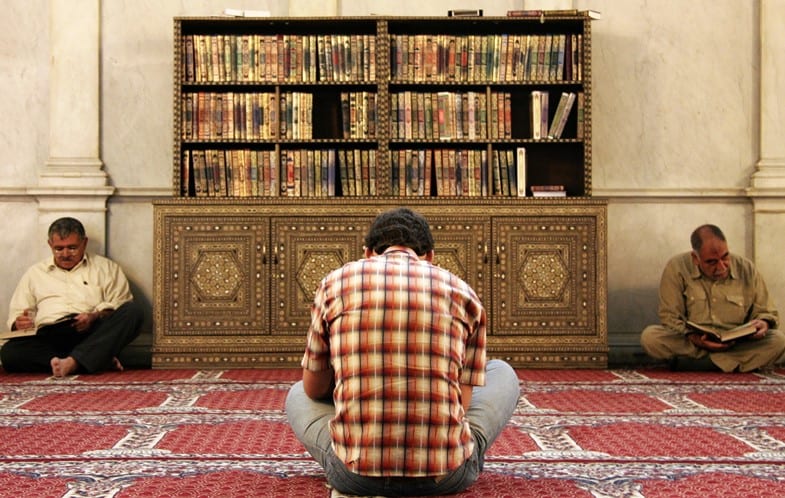Trials and tribulations are an inevitability of life, especially all the more so for those who take it upon themselves to engage in da’wah, hisbah (enjoining good and forbidding evil) and work for Islam, as Allah (swt) has made it clear that He will test the mettle of those who aspire to goodness and strife in His way. We present some brief ayat, ahadith quotes and anecdotes intended to provide food for thought on this issue. This is by no means a comprehensive exposition of this particular topic, but a brief survey of salient points to provide a reminder for brothers and sisters.
Allah (SWT) says in the Qur’an, in Suratul ‘Ankabut (2-3):
Do the people think that they will be left to say, “We believe” and they will not be tried? But We have certainly tried those before them, and Allah will surely make evident those who are truthful, and He will surely make evident the liars.
He (SWT) further said in Suratul Mulk (2):
It is He who created death and life to test you as to which of you are best in deed, and He is the Almighty, the Forgiving.
He (SWT) further said in Suratul Baqarah:
We will test you with something of fear, and hunger and loss of wealth, and souls and vegetation. And give glad tidings to those who have patience. Those who if in any difficulty or trial, or tribulation occurs to them or happens to them, they say: ‘Verily We are from Allah and to Allah we return.’ They are those who will receive prayers from their Lord and Mercy and it is those who are guided.
The Prophet ﷺ said (Tirmidhi #2396 and Saheeh):
The greatness of the reward is in proportion to the severity of the hardship and when Allah loves a slave, he trials him.
Trials can be a sign of Allah’s Love for his slave
He ﷺ further said (Sahih Bukhari):
When Allah intends good for someone, he afflicts them with trials.
He ﷺ further said (Sahih Bukhari):
If Allah loves a people, then He afflicts them with trials. Whoever is patient has the reward of patience, and whoever is impatient has the fault of impatience.
He ﷺ further said (Mishkat ul Masabih and Al Munawi said it is Hassan in his Takhrij of Mishkat, 2/23):
When the people of ‘Aafiyyah (those who were safe from trials in the dunya) see what the people of Balaa’ (Those who were trialed in the dunya) are by given by Allah in rewards, they will wish that their skins were sliced up by scissors in the dunya.
He ﷺ further said (Bukhari and Muslim):
Whoever Allah wants good for him, he puts them to test. He puts them through difficulties.
Being trialed as one engages in noble deeds
The examples of those who have been tested on account of their piety, and as means of their further elevation, are too many. Indeed, this has been a universal rule of Allah (swt) in how he has tested the best of His servants.
Knowing the inevitability of tests, many of the great Muslims made it their attitude to internalise and appreciate that a state of test and trial was an indication of Allah’s love for them.
For instance, when Ibrahim Taymi was imprisoned by the tyrannical Hajjaj ibn Yusuf and people asked why he did not make dua for release, he said: “I was feeling too ashamed to ask for the removal of something for which I am receiving so much ‘ajr.”
Abu Bakr al Shatiri, the famous reciter of the Qur’an, was once asked in an interview: “Why when you recite the Quran is there a sadness to your voice?” He replied: “When I began reciting Qur’an, I was trialed and after that, trials began befalling me constantly.”
Shaykhul Hadith Mufti Sa’id Ahmad Palanpuri said: “I will tell you a secret: Teach Sahih Bukhari and the doors of afflictions open upon you from all directions. You could be living a normal life and when you start teaching Bukhari your life turns upside down! Ask anyone in the world teaching Saheeh Bukhari…” (because of the elevation of their rank).
Knowing whether something is a Trial or Punishment
The Prophet ﷺ said (Sunan At-Tirmidhi):
If Allah loves a people, then He afflicts them with trials. Whoever is patient has the reward of patience, and whoever is impatient has the fault of impatience.
Imam Ibnul Qayyim said (Tareequl Hijratayn, #103, pg. 25):
If Allah puts someone under a trial and he recognises it, he must resort to Allah and this is a good sign and the trial turns into purification and mercy but if he rejects it, complains and turns away and resorts to humans, then this is bad for him and this trial turns into a punishment.
Imam Shah Waliullah Al Dehlawi, the famous scholar of the subcontinent, said that (Ma’ariful Quran):
…the trials on good people can be recognised by their contentment whereas evildoers take theirs to heart, bemoaning their sufferings and uttering words of ingratitude.
Thus, when something bad happens in our life, how we respond will determine weather it is a trial or punishment. If we are patient, not ungrateful and composed, it will be an elevation and reward for but if we are impatient, hasty and ungrateful, it is deemed a punishment upon us.
Allah (SWT) thus states in Suratul Zumar:
Only those who are patient shall receive their reward in full without account.
We ask Allah (swt) to grant us the Sabr necessary to deal with the trials and tribulations of this life.
![]()
















